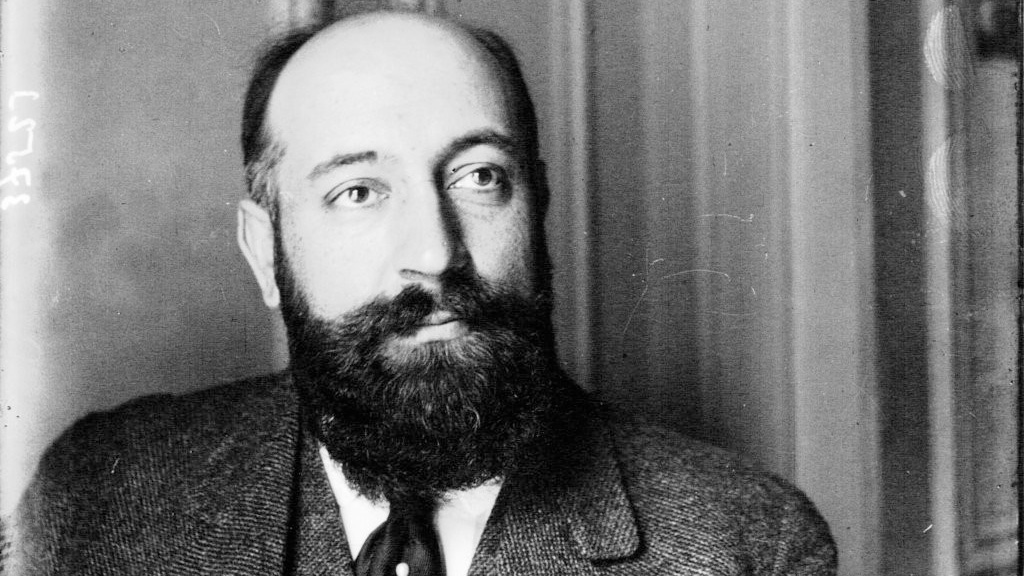Paris-Manchester 1918
Conservatoires in time of war
Address by the Under-Secretary of State for the Arts (1915)
An obligatory task for the Minister of Public Instruction or the Under-Secretary of State for the Arts, the address at the Conservatoire’s graduation ceremony had followed broadly the same outline since 1800: congratulations to the new graduates, a recalling of the political role of the Conservatoire as an institution born of the French Revolution, a reminder to the future musicians and actors of their patriotic duties, and a statement of the path that the Conservatoire should follow (pedagogical and organisational reforms etc.)
In this speech, Albert Dalimier (1875-1936) emphasises the extent of the upheaval caused by the war: the declaration of war is like a gulf separating 1914 from 1915. The address begins with the dead. Their names are intoned one by one, together with their awards from the Conservatoire. Dates of birth are not given: the emphasis lies not so much on their age as on their membership of the school.
The final paragraph appears to be a response to criticism directed at stretcher-bearer-musicians. These were often accused of being “shirkers” who avoided doing any fighting. Here the Secretary of State takes the side of the musicians, recalling their role as medical personnel and as “defenders” of a culture that he depicts as threatened by the cannons and the barbarism of the enemy.
Extract
Translation
Ladies and Gentlemen,
Last year, in keeping with a tradition that I have made it my duty to follow, I ended my address by paying tribute to the memory of those teachers and friends of the Conservatoire who had passed away during the school year. […]
This year, not only must I mourn the deaths of some eminent men, first-rate teachers who have left us after a brilliant career, but I must also salute previous prize winners or students who died for France in the prime of their youth. [. . .][1]
If our foes, blinded by a desire for dominion over all and driven by an insane pride, had not launched themselves on a Europe at peace, the roll of sorrow would have ended after the three teachers to whom, in the names of all here, I have just paid the tribute that was their due.
Yet, after a year of toil, our young students were called to arms in the very hour of their rest. They departed strengthened by youthful enthusiasm; full of confidence in the destiny of a country whose eternal greatness they, better than anyone else, had learned to love; convinced that our foes had erred in taking our generosity for weakness and our good humour for frivolity; and above all knowing that they were actors in the greatest drama ever staged, one in which the very life of France and the freedom of the world were at stake.
Their journey reunited them with their classmates of former times. Many have already fallen, and I wish to say their names, which shall be engraved over the threshold of your school so that future generations shall honour them and not forget:
Raymond Reynal, 1st prize for comedy 1912, junior member of the Comédie-Française;
Marcel Casadesus, 1st prize for cello 1903;
Léon Joffroy, 1st prize for flute 1905;
Gabriel Mogey, 1st prize for violin 1913;
Henri Garrigues, 2nd certificate of merit for tragedy 1907;
Georges Letellier, 2nd certificate of merit for bassoon 1907;[2]
Lucien Maillieux, 1st prize for accompaniment 1905;
Charles Brion, 1st certificate of merit for cornet 1914;
Lucien Lescure, student in the cornet class;
Charles Henry, 1st medal for music theory 1913, student in a singing and lyrical declamation class;
Georges Barguerie, 2nd certificate of merit for oboe 1914;
and Paul Thénard-Dumousseau, 1st medal for violin 1907, 1st certificate of merit for violin 1911,
all died on the field of honour.
I wish to express our deepest sympathy to their grieving families and to assure them that the memory of these heroes shall never fade.
How many hopes destroyed! How many young talents lost! How many painful breaches in the glorious ranks of our country’s artists!
The artists of France! Allow me to pay them the tribute that is their due. From the most illustrious to the most humble, every day, for many months, they have been fulfilling their duty at home as their comrades have been doing theirs so valiantly in the shadow of our flags. At hospital bedsides, artists bring our wounded a moment of relief from their suffering, and, at the first appeal from the organisers of benefit concerts, they come running without hesitation. They are both useful and generous. And something more: they are also staunch defenders of our masterworks, those that shall never perish and shall never be attacked by the sacrilegious cannons that destroyed our cathedrals. […]
[1]Here, Dalimier pays tribute to three recently deceased former teachers: the flautist Adolphe Joseph Hennebains (1862-1914), Auguste Justin Hippolyte de Martini (1866-1915) and the violinist Jean Baptiste Berthelier (1856-1915).
[2]1908 in fact.
Source
Albert Dalimier (1915) Address for the prize-giving ceremony at the Conservatoire, Paris, 13 July 1915, reproduced in Anne Bongrain (2012) Le Conservatoire national de musique et de déclamation 1900-1930. Documents historiques et administratifs, Paris: Vrin, p. 627-628.
Bibliography
Audoin-Rouzeau, Stéphane and Prochasson, Christophe (2008) Sortir de la Grande Guerre. Le monde et l’après-1918, Paris: Tallandier.
Becker, Annette (1994) La guerre et la foi, de la mort à la mémoire. 1914-1930, Paris: Armand Colin.
Bongrain, Anne (2012) Le Conservatoire national de musique et de déclamation 1900-1930. Documents historiques et administratifs, Paris: Vrin.
Demiaux, Victor (2013) La construction rituelle de la victoire dans les capitales européennes après la Grande Guerre (Bruxelles, Bucarest, Londres, Paris, Rome), doctoral thesis, Paris: EHESS.
Tison, Stéphane (2011) Comment sortir de la guerre ? Deuil, mémoire et traumatisme (1870-1940), Rennes: Presses universitaires de Rennes.




